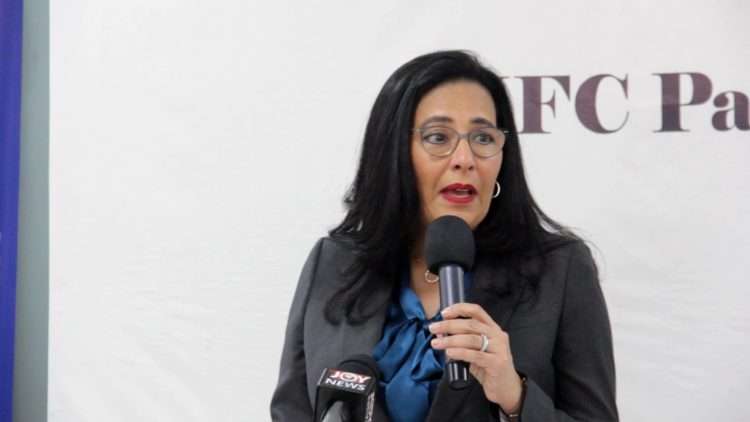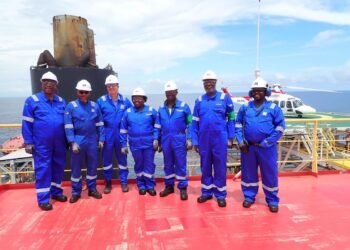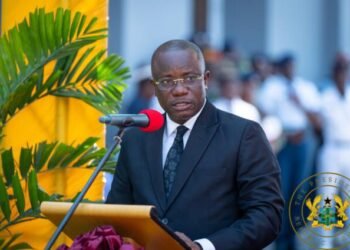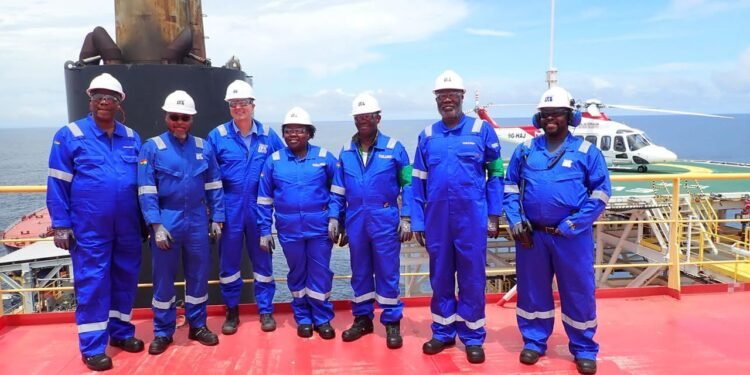The Ministry of Energy and Green Transitions has reaffirmed its commitment to transitioning Ghana’s energy sector towards sustainability by incorporating 21,000 megawatts (MW) of renewable energy into the national grid by 2070.
This ambitious plan is aimed at reducing energy costs, supporting clean energy goals, and positioning Ghana as a leader in renewable energy development.
As part of efforts to accelerate Ghana’s renewable energy transformation, the International Finance Corporation (IFC) and LMI Holdings have signed a $100 million loan agreement to construct a 1,000MW solar power plant.
The project will commence with an initial 150MW phase, which will be completed in two stages.
During the ceremonial signing, Seth Mahu, Director for Renewable Energy at the Ministry of Energy and Green Transitions, highlighted the importance of such investments in Ghana’s energy transformation.
“We strongly believe that projects like this will lower energy costs, ensuring that Ghana remains competitive in global industrial production.
“The Ministry of Energy is committed to ensuring that we transition the energy sector to net zero by 2070. The ultimate goal for us is to bring on board 21,000 megawatts of renewable energy within this timeframe.”
Seth Mahu, Director for Renewable Energy at the Ministry of Energy and Green Transitions
The Ministry has assured stakeholders that it will support the integration of renewable projects into Ghana’s energy networks to ensure seamless transmission of power.
In cases where demand exceeds supply, the Ministry is prepared to develop strategies to provide additional power to support industrial and domestic consumers beyond the immediate project area.
This initiative aligns with Ghana’s broader commitment to sustainable development, reducing dependence on fossil fuels, and achieving energy security while enhancing economic growth.
Mahu further underscored the Ministry’s commitment to facilitating the smooth integration of these projects into the national energy grid.
This approach also includes strategies for supporting areas beyond the immediate reach of renewable energy projects, guaranteeing that the benefits of clean energy extend across the country.
IFC Highlights Sustainability and Economic Growth

The IFC’s involvement in the $100 million solar power project underscores the growing importance of sustainability in business and development.
Dahlia Khalifa, the Regional Director for Central Africa and Anglophone West Africa at the IFC, spoke about the broader impact of such investments, emphasizing the need for sustainability to not only protect the environment but also foster economic growth.
“Sustainability is not just about the environment; it’s about creating jobs and uplifting livelihoods. This is a long-term strategy for growth.”
Dahlia Khalifa, the Regional Director for Central Africa and Anglophone West Africa at the IFC
Khalifa praised Ghana for being ahead of the curve in its green energy transition, highlighting that the country’s commitment to sustainability will have far-reaching effects on its industrial and manufacturing sectors.
The solar project is poised to increase Ghana’s export potential and attract further international investment, benefiting a wide range of industries, including garment manufacturing, food production, and agro-industries.
“Talk about value chains, making more export potential a reality, see the flow of international investment, and able to catch the benefits. Areas including industrial and manufacturing must remain a priority.”
This emphasis on industrial growth aligns with the IFC’s broader strategy to use renewable energy as a catalyst for economic development.
The $100 million project will not only provide power but will also create jobs, build industrial capacities, and support the creation of livelihoods in Ghana’s renewable energy sector.
With cheaper, sustainable power, Ghana’s industries will be better positioned to compete in the global market, driving economic growth while simultaneously addressing climate change.
The Ministry of Energy and Green Transitions’ commitment to adding 21,000MW of renewable energy by 2070 is a bold step toward achieving a sustainable and cost-efficient energy sector.
With strategic investments such as the 1,000MW solar project by IFC and LMI Holdings, Ghana is positioning itself as a leader in renewable energy in Africa.
As the country continues its green transition, collaboration between government, private investors, and international stakeholders will be critical in ensuring the success of Ghana’s clean energy goals.
The coming years will determine how effectively Ghana can leverage renewable energy to drive economic growth, environmental sustainability, and energy security.
READ ALSO: MTN Ghana Closes at GHS2.76 in Light Trading Session on the GSE























